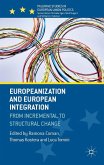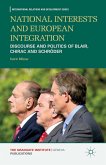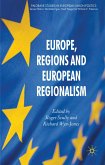How should political community be seen in the context of European integration? This book combines a theoretical treatment of political allegiance with a study of ordinary citizens, examining how taxi-drivers in Britain, Germany and the Czech Republic talk politics and situate themselves relative to political institutions and other citizens.
'This is one of the most insightful studies yet to be published of the increasingly vexed question of political belonging in the European Union. The author combines a panoramic grasp of transnational political theory and a subtle investigation into the microsociology of political identity across the taxi ranks of Europe to produce a study that is as easily readable as it is deeply illuminating'- Neil Walker, Professor of Public Law and the Law of Nature and Nations, University of Edinburgh, UK
'This remarkable book makes a very original contribution to our understanding of the European Polity. It documents how ordinary Europeans define "us" and "them" across three domains of social problems: economics/work, society and the law, and relations between people. It considers the place given to Europe and to the European Union in these definitions, the role of spatial distance in shaping boundaries, and their porousness. Thus it complements beautifully the sizable literature on imagined communities and the study of how ordinary citizens 'do' democracy. The theoretical argument is skilfully positioned within several debates in political theory and political sociology. I am particularly appreciative of the empirical contributions to our understanding of the variegated configuration of boundary patterns found across nations. The research adds quite a bit of complexity and specificity to available research on European identity and European racism and xenophobia.'- MicheleLamont, Robert I Goldman Professor of European Studies and Professor of Sociology, Harvard University, USA
'Social scientists love peppering their talks with taxi driver anecdotes. Here is a book that takes taxi drivers' views seriously. Jonathan White's analysis of political bonds in the European Union is a successful exercise in 'outdoors political theory'. It provides a breath of fresh air that reignites the old debate whether a European polity can be built on a shared sense of common problems among its citizens.' - Rainer Bauböck, Professor of Social and Political Theory, European University Institute, Florence, Italy
'This remarkable book makes a very original contribution to our understanding of the European Polity. It documents how ordinary Europeans define "us" and "them" across three domains of social problems: economics/work, society and the law, and relations between people. It considers the place given to Europe and to the European Union in these definitions, the role of spatial distance in shaping boundaries, and their porousness. Thus it complements beautifully the sizable literature on imagined communities and the study of how ordinary citizens 'do' democracy. The theoretical argument is skilfully positioned within several debates in political theory and political sociology. I am particularly appreciative of the empirical contributions to our understanding of the variegated configuration of boundary patterns found across nations. The research adds quite a bit of complexity and specificity to available research on European identity and European racism and xenophobia.'- MicheleLamont, Robert I Goldman Professor of European Studies and Professor of Sociology, Harvard University, USA
'Social scientists love peppering their talks with taxi driver anecdotes. Here is a book that takes taxi drivers' views seriously. Jonathan White's analysis of political bonds in the European Union is a successful exercise in 'outdoors political theory'. It provides a breath of fresh air that reignites the old debate whether a European polity can be built on a shared sense of common problems among its citizens.' - Rainer Bauböck, Professor of Social and Political Theory, European University Institute, Florence, Italy









